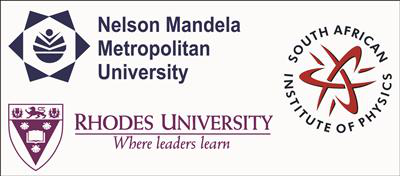Speaker
Main supervisor (name and email)<br>and his / her institution
Prof. Elias Sideras-Haddad, University of the Witwatersrand
Would you like to <br> submit a short paper <br> for the Conference <br> Proceedings (Yes / No)?
NO
Abstract content <br> (Max 300 words)<br><a href="http://events.saip.org.za/getFile.py/access?resId=0&materialId=0&confId=34" target="_blank">Formatting &<br>Special chars</a>
Digital Neutron Radiography/Tomography as analytic technique has found applications ranging from quality assurance to research because of the unique nature of interaction of neutrons with materials. These radiation based imaging analytical techniques have gained acceptance because they are non-destructive and their output are radiographs or tomograms in real space. Neutron Radiography facilities provide results which lead to quality related decision making or diagnosis of an abnormality – therefore it is necessary to qualify the performance of the total experimental geometrical and detection setup. Spatial resolution has been identified as one of the important key factors for characterization of the performance of Radiography and Tomography setups. It can be assessed in a discrete and continuous context, and together with contrast, another important parameter in the radiography setup, determines the sharpness of the produced radiograph of a specimen.
This work establishes the performance of Radiography and Tomography facilities through the design of test objects, experimental protocol, data post-processing and analysis procedures. An end product of this PhD component is the establishment of a software package to be used as an internationally accepted specification for the automated assessment of the spatial resolution performance of neutron radiography facilities.
This presentation will focus on Matlab-software simulations backed by experimental measurements to assess the spatial resolution of a facility through application of the Modulation Transfer Function (MTF).
Please indicate whether<br>this abstract may be<br>published online<br>(Yes / No)
YES
Apply to be<br> considered for a student <br> award (Yes / No)?
YES
Level for award<br> (Hons, MSc, <br> PhD, N/A)?
PhD

